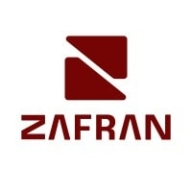


ArmorCode and Unified Vulnerability Management are competing in cybersecurity, focusing on vulnerability identification and management. ArmorCode has an advantage in pricing and customer support, while Unified Vulnerability Management leads in features and perceived value.
Features: ArmorCode offers effective risk prioritization, collaboration tools for security teams, and a focus on team coordination. Unified Vulnerability Management provides a broad range of integrations, comprehensive vulnerability assessment capabilities, and holistic security coverage.
Ease of Deployment and Customer Service: Unified Vulnerability Management features a straightforward deployment process and responsive service. ArmorCode, while having streamlined deployment, distinguishes itself with a stronger support system, leading to higher customer satisfaction.
Pricing and ROI: ArmorCode provides competitive setup costs with high return on investment, appealing to budget-conscious organizations. Unified Vulnerability Management demands a higher initial investment but delivers features justifying the cost for comprehensive protection seekers.

Zafran Security integrates with existing security tools to identify and mitigate vulnerabilities effectively, proving that most critical vulnerabilities are not exploitable, optimizing threat management.
Zafran Security introduces an innovative operating model for managing security threats and vulnerabilities. By leveraging the threat exposure management platform, it pinpoints and prioritizes exploitable vulnerabilities, reducing risk through immediate remediation. This platform enhances your hybrid cloud security by normalizing vulnerability signals and integrating specific IT context data, such as CVE runtime presence and internet asset reachability, into its analysis. No longer reliant on patch windows, Zafran Security allows you to manage risks actively.
What are the key features of Zafran Security?
What benefits can users expect from Zafran Security?
In industries where security is paramount, such as finance and healthcare, Zafran Security provides invaluable protection by ensuring that only exploitable vulnerabilities are addressed. It allows entities to maintain robust security measures while allocating resources efficiently, fitting seamlessly into existing security strategies.
ArmorCode is an Application Security Posture Management (ASPM) platform designed to break down security scanning silos, enabling organizations to identify, articulate, and remediate their most critical risks. It spans multiple use cases, providing a unified approach to managing application security.
ArmorCode excels in consolidating security activities across the software development lifecycle. The platform integrates seamlessly with existing development and security tools, offering a comprehensive view of application security. By leveraging AI-driven analytics, ArmorCode prioritizes threats, streamlines remediation efforts, and automates compliance processes. This ensures that security teams can focus on addressing the most critical issues efficiently, maintaining continuous compliance, and reducing manual effort.
What are the critical features of ArmorCode?
What are the benefits of ArmorCode?
ArmorCode is used across various industries, including finance, healthcare, and technology, where strong application security is vital. In healthcare, for instance, it helps protect sensitive patient data and ensures compliance with regulations like HIPAA by securing applications comprehensively.
Pricing for ArmorCode is typically based on the number of applications and users, with flexible licensing options to suit different organizational needs. Customer support includes thorough onboarding, training, and 24/7 technical assistance, ensuring smooth implementation and ongoing satisfaction.
In summary, ArmorCode is an ASPM platform that unifies security scanning efforts to effectively identify, prioritize, and remediate critical risks, making it a valuable tool for enhancing application security across multiple use cases.
Unified Vulnerability Management streamlines the identification and management of security risks. It's designed to enhance cybersecurity efforts by providing consolidated tools and insights for managing vulnerabilities.
Unified Vulnerability Management plays a crucial role in cybersecurity by centralizing tools and processes, optimizing risk management with real-time insights, and offering customizable reporting. Its integrated approach allows organizations to address threats promptly, ensuring a proactive security posture.
What are the key features of Unified Vulnerability Management?In sectors like finance and healthcare, Unified Vulnerability Management is implemented to meet compliance requirements and protect sensitive data. Its robust capability to manage complex environments supports integration into diverse organizational frameworks, ensuring tailored solutions for industry-specific challenges.
We monitor all Risk-Based Vulnerability Management reviews to prevent fraudulent reviews and keep review quality high. We do not post reviews by company employees or direct competitors. We validate each review for authenticity via cross-reference with LinkedIn, and personal follow-up with the reviewer when necessary.